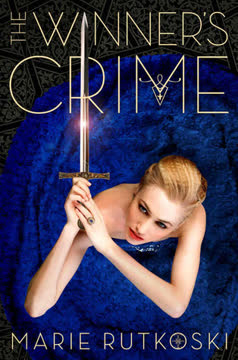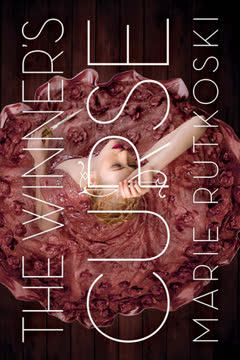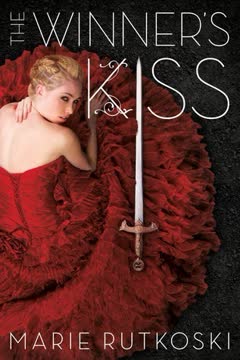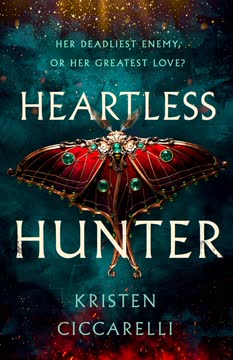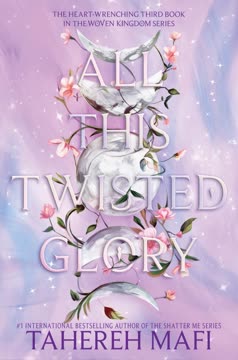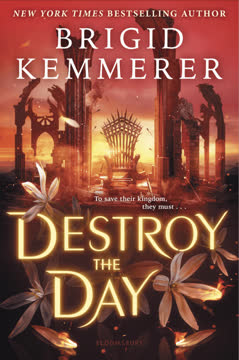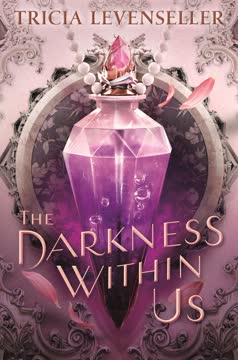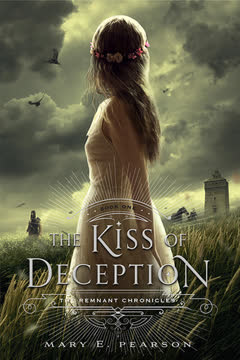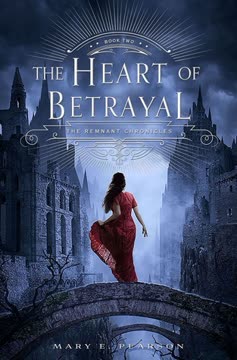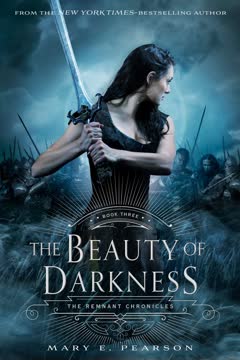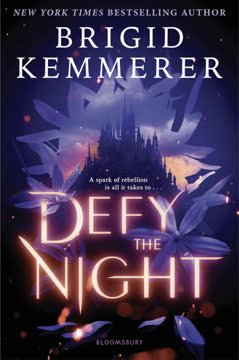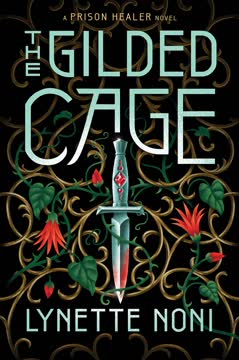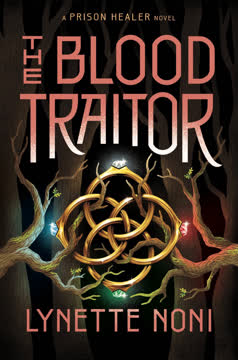Plot Summary
Blood on the Letter
Kestrel, now the imperial ambassador to Herran and engaged to Prince Verex, receives a letter in Herrani script. Her heart leaps, hoping it's from Arin, but it's only from a new minister. The cut she gets opening the letter is a small wound, but it mirrors the deeper pain of separation and longing. Kestrel's life is now one of luxury and political maneuvering, but she feels alien in the imperial palace, haunted by memories of Herran and Arin. The stone walls and tight hallways of the palace are a fortress, both physically and emotionally, and Kestrel must steel herself for the role she's chosen, even as she feels unsteady and out of place.
The Emperor's Game
At dinner with the emperor, Kestrel is drawn into a psychological game. The emperor tests her with a dissolving sugar fork and pointed questions about her engagement and the timing of her wedding. He makes it clear that he sees her as a tool, someone to be shaped into a ruler, unlike his own son. Kestrel tries to delay the wedding, using political reasoning, but the emperor sees through her. He promises her power, but also warns her that ruling means making hard, even cruel, choices. The encounter leaves Kestrel shaken, aware that every move she makes is being watched and judged.
Herran's Invitation
Arin, now governor of Herran, receives an imperial summons to attend Kestrel's engagement ball. The invitation is an order, not a request, and Arin is painfully aware of his lack of power. Memories of his time as a slave and the complex web of favors and debts among the Herrani haunt him. He consults with Tensen, his spymaster, who urges him to go, seeing it as an opportunity to gather information and maintain their fragile autonomy. Arin is torn between pride, duty, and the unresolved feelings he has for Kestrel, knowing that seeing her again will reopen old wounds.
Poisoned Prisoner
Kestrel is taken by the captain of the guard to witness the torture of a Herrani prisoner, Thrynne. The experience is harrowing, and Kestrel is forced to confront the reality of imperial power and her own complicity. Thrynne, in agony, tries to pass a message: "This is the year of money. He needs to know." Kestrel is shaken, realizing that the emperor is testing her resolve and warning her of the consequences of disloyalty. The encounter leaves her feeling helpless and guilty, but also determined to find out what Thrynne's message means and to help, if she can.
The Jadis Coin
The emperor gives Kestrel a coin bearing the symbol of Jadis, a legendary Valorian woman who killed her captor with knitting needles. He uses the story to remind Kestrel of the power of hidden motives and the importance of loyalty. The emperor makes it clear that he knows about the rumors surrounding Kestrel and Arin, and that her future depends on her ability to serve the empire without question. He takes her cherished dagger, a gift from her father, as a symbol of his control. Kestrel is left feeling exposed and vulnerable, aware that her every action is being scrutinized.
The Engagement Ball
As the engagement ball approaches, Kestrel is surrounded by luxury but feels increasingly isolated. Her friendship with Jess is strained, and her relationship with Verex is awkward and distant. The emperor's games continue, and Kestrel learns that Arin will be attending the ball. The anticipation is both thrilling and terrifying. When Arin finally arrives, their encounter is charged with longing and pain. They are drawn to each other, but the barriers between them—duty, loyalty, and the emperor's watchful eye—seem insurmountable. The ball becomes a stage for political maneuvering and personal heartbreak.
The Prince's Friend
Kestrel and Verex, both trapped by the emperor's expectations, begin to find common ground. They agree to be friends, recognizing that their marriage is a political arrangement rather than a romantic one. Verex confides in Kestrel about his own struggles with his father and his feelings for the eastern princess, Risha. Kestrel, in turn, shares her loneliness and her desire for agency. Their alliance is tentative but genuine, offering both a measure of comfort in a world where trust is scarce and betrayal is always a possibility.
The Moth's Message
Haunted by Thrynne's warning, Kestrel begins to investigate the emperor's plans. She discovers that the Herrani are being slowly poisoned through their water supply, a secret known only to a few. With the help of Tensen and the code name "Moth," Kestrel passes information to Arin, risking everything to save Herran. The act of espionage is both thrilling and terrifying, forcing Kestrel to confront the limits of her loyalty and the cost of her choices. She is caught between two worlds, unable to fully belong to either.
The Tiger's Scar
Arin's time in the capital is marked by danger and betrayal. He is attacked and left with a scar that becomes a symbol of his suffering and resilience. Deliah, the dressmaker, helps him, but her loyalty costs her life. Arin's search for answers leads him to the east, where he forms an uneasy alliance with Roshar and the Dacran queen. Together, they develop a new weapon that could change the balance of power. Arin's journey is one of transformation, as he moves from victim to leader, determined to save his people at any cost.
The Poisoned Harvest
The emperor's true intentions are revealed: he plans to exterminate the Herrani by poisoning their water supply and seizing their harvest. Kestrel is consumed by guilt, realizing that her actions have contributed to the suffering of her people and the deaths of innocents. She tries to warn Arin, but her efforts are thwarted by the emperor's surveillance and her father's loyalty to the empire. The weight of her choices becomes unbearable, and Kestrel is forced to confront the reality of her own complicity.
The Wedding Dress Bet
The court is abuzz with bets on the details of Kestrel's wedding dress, a symbol of the political and personal stakes at play. The water engineer and the palace physician are implicated in the emperor's plot, and Kestrel's attempts to uncover the truth put her in greater danger. Deliah's death is a stark reminder of the cost of loyalty and the risks of defiance. Kestrel's relationships with Jess and Ronan are shattered by betrayal and loss, leaving her more isolated than ever.
The Emperor's Trap
Kestrel's efforts to save Herran are discovered, and she is betrayed by her own father, who chooses loyalty to the emperor over love for his daughter. The emperor orchestrates her downfall, framing her for treason and sending her to the northern tundra, a fate worse than death. Kestrel's world collapses, and she is left with nothing but the memory of what she has lost. The final betrayal is devastating, as the bonds of family, love, and loyalty are severed beyond repair.
The Music Room Confession
In a charged encounter in the music room, Kestrel and Arin confront the truth of their feelings and the consequences of their choices. Kestrel, under the watchful eye of her father, is forced to deny her love and her role in saving Herran. Arin, desperate for answers, is left heartbroken and disillusioned. The moment is a culmination of all the tension and longing that has defined their relationship, and its aftermath leaves both changed forever.
The General's Betrayal
The general's decision to betray Kestrel is a turning point, marking the triumph of duty over love. Kestrel's pleas for mercy are ignored, and she is handed over to the emperor's justice. The act is both a personal and political betrayal, shattering the last vestiges of trust and hope. Kestrel's sense of self is destroyed, and she is left to face the consequences of her actions alone.
North to the Tundra
Kestrel is sent north to the tundra, her identity erased and her future uncertain. Arin, having secured an alliance with the east and developed a new weapon, returns to Herran to face the coming war. Both are irrevocably changed by their experiences, marked by loss, betrayal, and the knowledge that the world they once knew is gone forever. The story ends on a note of uncertainty, as the fate of Herran, Valoria, and the love between Kestrel and Arin hangs in the balance.
Characters
Kestrel Trajan
Kestrel is the daughter of the Valorian general, engaged to the crown prince, and a master of political and psychological games. Her intelligence and cunning are matched only by her deep capacity for love and guilt. Kestrel is haunted by her choices, torn between loyalty to her father and her love for Arin. She becomes a reluctant spy, risking everything to save Herran, but her actions are always shadowed by the knowledge that she is complicit in the empire's cruelty. Kestrel's journey is one of self-discovery and loss, as she learns the true cost of power, love, and betrayal. Her relationships—with Arin, her father, Jess, and Verex—are complex and fraught, revealing a character who is both fiercely independent and deeply vulnerable.
Arin
Arin is the former Herrani slave who becomes governor of his people, a man marked by trauma, resilience, and a relentless drive for freedom. His relationship with Kestrel is the emotional core of the story, defined by longing, misunderstanding, and the scars of the past. Arin is both a victim and a leader, forced to navigate the treacherous politics of the empire while grappling with his own sense of worth and agency. His journey takes him from the depths of despair to the heights of innovation, as he forges new alliances and weapons to save his people. Arin's psychological complexity is revealed in his capacity for forgiveness, his struggle with trust, and his willingness to sacrifice everything for those he loves.
General Trajan
General Trajan is the architect of Valoria's military might and the standard-bearer of its values. He is both a loving father and a merciless commander, torn between his duty to the empire and his affection for Kestrel. His betrayal of his daughter is the story's most devastating moment, revealing the limits of loyalty and the corrosive power of ideology. Trajan's psychological rigidity and inability to reconcile love with duty make him both a tragic and terrifying figure, a man who ultimately chooses the empire over his own blood.
The Emperor
The emperor is a master of psychological games, using fear, reward, and surveillance to control those around him. He sees Kestrel as both a tool and a threat, shaping her into a ruler while testing her loyalty at every turn. The emperor's cruelty is matched by his cunning, and his willingness to sacrifice anyone—including his own son—for the sake of the empire is absolute. He is the story's primary antagonist, a symbol of the corrupting influence of power and the dangers of unchecked ambition.
Prince Verex
Verex is the crown prince, a gentle and intelligent young man trapped by his father's expectations and the demands of the empire. His friendship with Kestrel is a source of comfort and support, offering both a measure of agency in a world that seeks to control them. Verex's love for Risha and his desire to be more than a pawn in the emperor's games reveal a character of quiet strength and vulnerability. His psychological struggle is one of self-acceptance and the search for meaning in a world that values power above all else.
Jess
Jess is Kestrel's childhood friend, a symbol of the world that has been lost to war and betrayal. Her relationship with Kestrel is shattered by misunderstanding, jealousy, and the trauma of the Herrani rebellion. Jess's psychological fragility and dependence on medicine reflect the broader damage inflicted by the empire's violence. Her silence and eventual rejection of Kestrel are a source of deep pain, underscoring the story's themes of loss and the impossibility of returning to innocence.
Tensen
Tensen is the Herrani minister of agriculture and Arin's spymaster, a man of many faces and hidden depths. His role as the "Moth" is central to the story's espionage plot, and his relationship with Kestrel is one of mutual respect and shared risk. Tensen's psychological complexity is revealed in his willingness to sacrifice himself for the greater good, and his death is a turning point that exposes the true cost of resistance. He is both a mentor and a cautionary figure, embodying the dangers of living in the shadows.
Roshar
Roshar is the Dacran prince, a survivor of imperial cruelty and a master of both violence and wit. His relationship with Arin is marked by rivalry, camaraderie, and a shared sense of loss. Roshar's psychological scars are both literal and metaphorical, and his willingness to risk everything for his people makes him a formidable ally. His complexity is revealed in his relationship with his sister Risha and his struggle to reconcile loyalty with survival.
Risha
Risha is the eastern princess, kidnapped as a child and raised as a hostage in the imperial palace. Her beauty, intelligence, and hidden strength make her both a symbol of the empire's power and a potential threat to it. Risha's psychological journey is one of adaptation and resistance, as she navigates the dangers of court life while holding onto her identity. Her relationship with Verex and her role as the "Moth" add layers of intrigue and ambiguity to her character.
Deliah
Deliah is the Herrani dressmaker whose loyalty to Arin and Kestrel costs her life. Her role is small but significant, embodying the risks faced by those who resist the empire in quiet ways. Deliah's psychological strength and resilience are revealed in her willingness to help, even when it means certain death. Her fate is a stark reminder of the story's central theme: that in a world ruled by power, even the smallest acts of defiance can have deadly consequences.
Plot Devices
Duality and Deception
The narrative is driven by secrets, hidden motives, and the constant threat of exposure. The use of coded messages, hidden rooms, and double-sided coins reinforces the theme of deception, while the shifting perspectives of Kestrel and Arin allow the reader to experience the story's emotional complexity from both sides. Foreshadowing is used to build tension, with early hints of betrayal and danger coming to fruition in the story's climax. The motif of games—both literal (Bite and Sting, Borderlands) and metaphorical—serves as a lens through which characters navigate the treacherous world of the empire, revealing the psychological stakes of every decision.
Symbolism and Motifs
The sugar fork, the Jadis coin, the wedding dress, and the poisoned water supply are all symbols of the power dynamics at play. The recurring image of the moth represents both vulnerability and resistance, while the act of playing music becomes a metaphor for communication, confession, and the search for understanding. The use of color—red for the wedding dress, black for the poisoned harvest, white for temptation—reinforces the story's emotional arc and the characters' psychological states.
Psychological Realism
Characters are driven by complex motivations, and their actions are shaped by trauma, longing, and the desire for agency. The narrative structure allows for deep exploration of internal conflict, with moments of introspection and self-doubt providing insight into the characters' development. The use of memory, dream sequences, and imagined conversations blurs the line between reality and fantasy, reflecting the characters' struggle to reconcile their desires with the demands of the world around them.
Tragic Irony and Foreshadowing
Foreshadowing is used to build a sense of inevitability, with early warnings and subtle hints coming to fruition in the story's devastating climax. The motif of the game—where every move has consequences, and the outcome is never certain—serves as a constant reminder of the stakes at play and the impossibility of escaping fate.
Analysis
Marie Rutkoski's The Winner's Crime is a masterful exploration of power, love, and the psychological cost of survival in a world defined by conquest and betrayal. The novel's brilliance lies in its ability to weave together personal and political stakes, using the intimate struggles of its characters to illuminate the broader dynamics of empire and resistance. Kestrel and Arin are both victims and agents, forced to navigate a landscape where every choice is fraught with danger and every act of defiance carries a price. The story's use of games, secrets, and coded messages reflects the complexity of human motivation, while its focus on psychological realism grounds the narrative in emotional truth. The novel's tragic arc—culminating in Kestrel's betrayal and exile—serves as a powerful commentary on the limits of agency and the corrosive effects of power. Ultimately, The Winner's Crime is a story about the impossibility of innocence, the necessity of sacrifice, and the enduring hope that even in the darkest of times, love and loyalty can survive.
Last updated:
Review Summary
The Winner's Crime receives mostly positive reviews, with readers praising its political intrigue, character development, and heart-wrenching plot twists. Many find Kestrel's strategic mind and complex decision-making compelling. The romance between Kestrel and Arin is a source of both frustration and anticipation for readers. Some criticize the lack of communication between characters and the abundance of lies. Overall, reviewers consider it a strong sequel that sets high expectations for the final book in the trilogy.
The Winner's Trilogy Series
Similar Books
Download PDF
Download EPUB
.epub digital book format is ideal for reading ebooks on phones, tablets, and e-readers.
